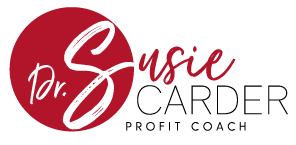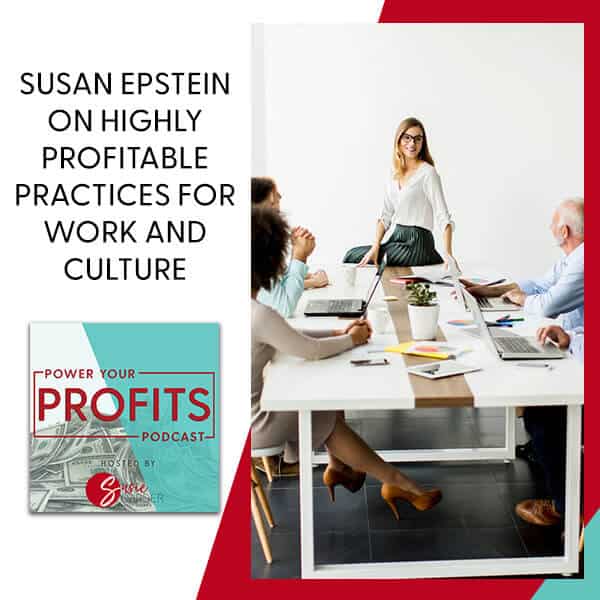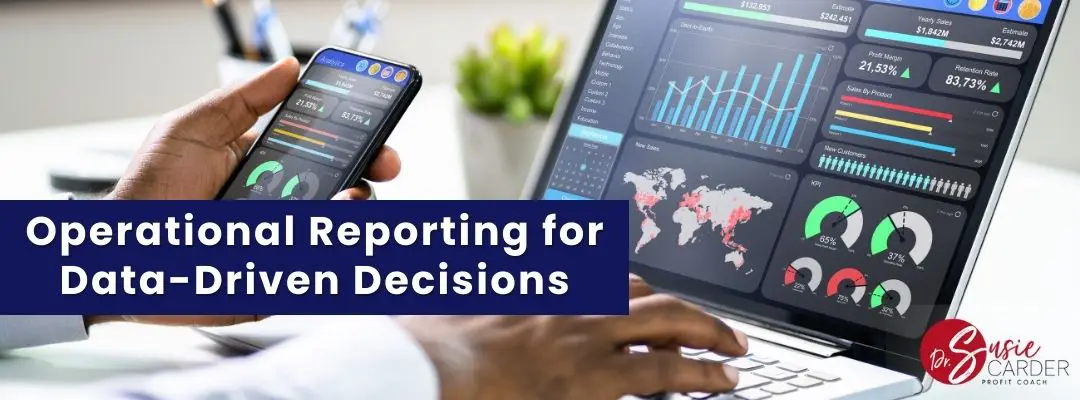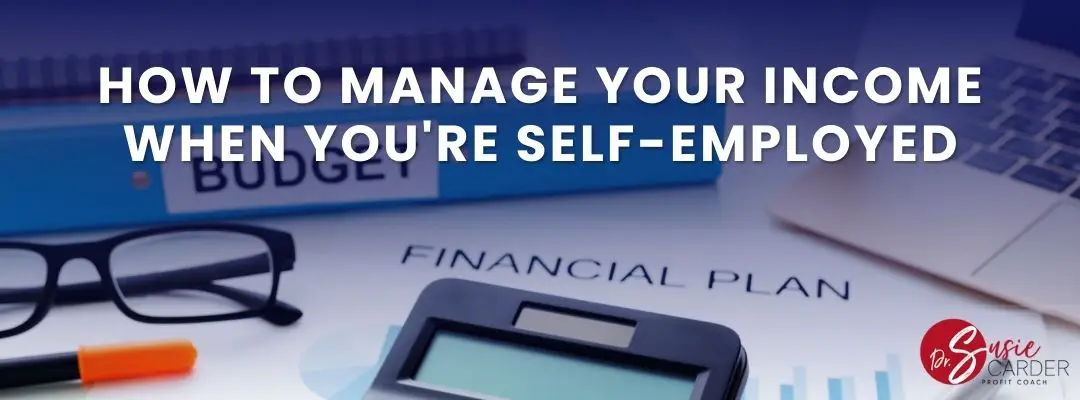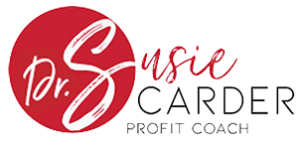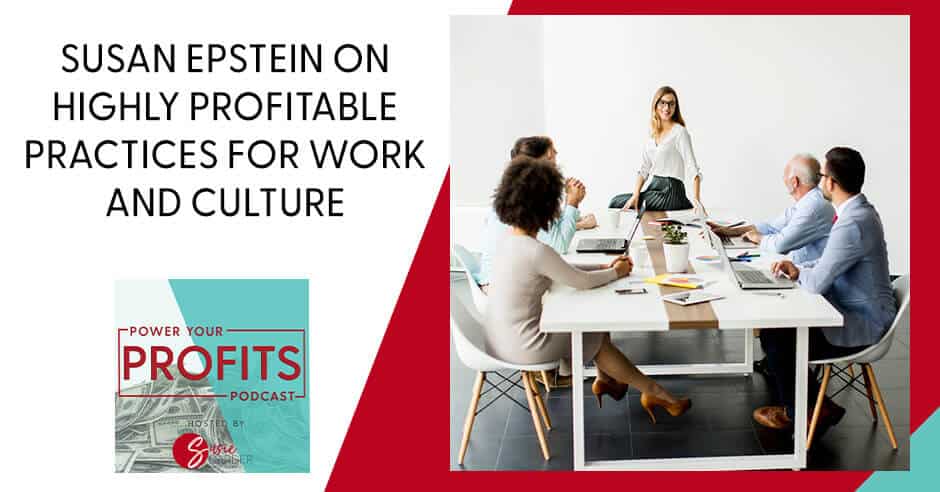
What can you start doing to better your business? Susan Epstein is the founder of Highly Profitable Practice, where she and her team provide coaching and mentoring services to seasoned women professionals who want to scale their coaching business. In this episode, she joins host Susie Carder to share some of her tips and advice on creating highly profitable practices to help you handle your business. Listen in as Susan also talks about leadership and building the right culture for your team and how that impacts your business.
—
Watch the episode here
Listen to the podcast here
Susan Epstein On Highly Profitable Practices For Work And Culture
My next guest, Susan Epstein, is a Founder of highly profitable practices, coaching, and mentoring service to seasoned women professionals who want to scale their coaching business. She has over 25 years of experience as a business coach and strategist, helping women create coaching programs that give them the lifestyle, business, and financial independence they want and deserve. She currently offers coaching programs that focus on designing, creating, and fulfilling groups and masterminds. Please welcome my guest, Susan.
—
Susan, thank you so much for joining us. I’m excited that you are here. Tell everybody, what’s your magic? What makes you different than everybody else? What makes you unique? We all have a little different spin on what we do and how we do it.
A lot of what makes me different, Susie, is that I was a psychotherapist before I ever was a coach. I had so many training, talking to people, listening to people, and hours and hours of helping people solve pretty tough problems. I worked with parents, adults, kids, and teens. I worked for agencies and had a private practice. I have had a lot of experience in that field, and people say when they meet me, “You are so calm.”
You are not the average entrepreneur.
I went through all that heavy stuff early, so now it’s like, “I have heard it all. There’s nothing that you are going to tell me that’s going to surprise me. I have nothing I’m going to judge you on. I’m here to help move you forward.”
Many people are struggling now with our economy, the pandemic, the nervousness, and the fear storm. What’s your secret sauce to staying in action and keeping your business growing while the world is in chaos?
Find simple things to be grateful for and to occupy your time. One of the things that I started doing sort of like very religiously was a new skincare system. I always would wash my face. I take my makeup off and have had whatever I found in the grocery store. It’s nothing fancy. My daughter started using something and she’s like, “Come on. You got to try this.” I did it and I was like, “This is interesting because not only am I enjoying the aftereffects of it but I’m enjoying taking some time for me before I present my face to the day.”
Also, taking time before I go to bed to do that same thing again. That morning and evening, have this nice Susan time, my time. I take a walk every day. Unless it’s pouring rain, I’m doing it. I won’t do it in the pouring rain. It’s not worth it to me. I am also planning around meals so that I don’t have to stress about that. If those things are handled, my personal care, my exercise, and my meal planning, then everything else is a piece of cake. As long as I have what I need to shore myself up, I can show up.
I love that because that’s the new motto, “Self-care is the new healthcare,” and especially for women because we are usually taking care of everybody else, and we are the last on the totem pole. I love the shift that we are all doing. It’s a movement. We are creating another movement, Susan. Let’s talk about highly profitable practices. Share with us how do we create a highly profitable practice? Give us three things that we could be doing now in our practices to have a shift in this conversation.
Every time you go to do something in your business, ask yourself this question, “Is this the best use of your time, your talent, and your abilities? Is making a design on Canva the best use of your time? Is writing a book this year the best use of your time, your talent, and your abilities or do the best use of your time, talent, and abilities need to go to do something else this year?” It’s being able to not feel all those shoulds because we are always slammed with them. “I should do this, and I should do that. I should do a speaking engagement. I should write a book. I should start a blog. I should do a LinkedIn thing. I should get on a podcast. I should have a podcast.”
I should, and I should have, but we can’t do it. It’s impossible. Number one is checking in. “Is this something that I need to be doing?” Number two is, “As you are doing the thing that you’ve committed to, your lane that you are going in, a distraction comes your way, and it’s a really good idea, ‘This is such a good idea. It’s an opportunity. Kill your best ideas.’”
[bctt tweet=”Find simple things to be grateful for and occupy your time.” via=”no”]
We call them the Sparkle syndrome. “There is always another one.”
They are not going to serve you. Thirdly, is always stacking the things that you do. I use a triangle, and on the bottom, I put the things that I don’t like to do. In the middle, I put the things that are like, “Nah,” or whatever. I like it enough but I don’t hate it. I don’t dread it. On the top is what I love to do. I like to do this about once a month, and that helps me take those bottom things and push them up the triangle by outsourcing them to people who like to do those things. I get to do the top of the triangle, the teeny stuff, and that’s coaching, speaking, teaching, writing, and meeting with my team but not being so much in the weeds of my business being on it.
I’m a note-taker, so I take notes while we do this. It helps me learn. If I hear it, write it, and then immediately implement it, it’s a game-changer. Many people listen and go, “I took that class.” Taking that class, implementing that class or implementing the strategy, and people get it twisted. Don’t take it because it’s simple. Simplicity is what makes a genius. It’s to go, “Let me get rid of distractions. Let me get rid of the things I hate to do.” The things that are a jail sentence to you so that you can have more joy in your life because that’s important.
I hired this organizer because I bought this new house. It’s smaller than my old house. I’m like, “I just need to scale down.” She’s like, “Susie, instead of looking at things you haven’t used in a year, look at them and say, ‘Does it bring me joy?’ If the answer is no, get rid of it.” I got rid of 3 big 30-gallon trash bags of clothes because I realized that I was just hoarding. I have them but I haven’t worn them. I look at them. I try them on and hang them back up.
It’s so funny how we hang on to things that don’t serve us anymore. They served me when they served me but they are not serving me now for the season that I’m in. It was so freeing to go, “It doesn’t bring me joy. I don’t need stuff.” I think we all go through that stuff thing. Talk about profitable practice. What’s your strategy? I get this question all the time with my students. What should I charge Susie for this? I have the magic fairy dust out of my heinie like, “You should charge $5,000.” What is your formula, Susan?
For pricing their services because I find, and I’m sure you find, that most people are undercharging because they don’t have a formula. They are truly pulling it out of their heinie or going, “What does Susan charge? What does Susie charge? What does Bob charge? What does Lisa charge? What does whoever charge?” We make up our pricing that way. What’s your strategy when you are looking at pricing your services?
It has been a journey. We all go with that but I think about what I would pay for something. That’s always like if I was going to hire a coach or what I would think was a fair amount. I never charged over the amount that I haven’t paid myself for coaching, not just what I would pay but what I have paid for in the past. I’ve paid a lot of money in the past, and some of it, I didn’t get so many good things. I want to make sure that whatever someone is paying, they can walk away and say, “That was worth it.”
They are getting that value.
It’s not about the money, and that’s what I tell people. It’s about the end result of what it did for them. If you have someone struggling their entire life with weight and they work with you, you help them lose it and keep it under control for the rest of their life, what is that worth compared to what they have already been through on 300 diets, this thing, that thing, and the other thing? It’s like, “What would it be worth to you to be able to eat as much chocolate as you want and never gain a pound? What would that be worth to you?”
I was like, “You can have my retirement account.” It is not because we carry the stress, and it doesn’t matter what it is. What have you worked for that business owner to finally be able to have a team that goes to bat for them, that works with them, and that isn’t fighting infighting? What would it be worth to you to double or triple your revenues next year?

What would it be worth to you to have a month’s vacation and be able to walk away from your business and know that it was in good hands when you left? That’s the value. I try to get my clients to also think, “It’s not about the money.” It isn’t, but it’s mostly not about the money because if somebody wants something, they will find the money to do it.
We speak to that a lot. If there’s value in comparing because that’s competitive analysis, that’s one level. The second, which is what you are talking about, is what’s the result you are helping people create? That’s what we always tell our students it’s not about time. It’s not about it’s of the program. It’s the end result, and that could take 1 an hour or 10 hours. It’s all relative to what is produced and what we are doing. That’s delicious when I look at that. What would you say was the key to leveraging the coaching business, which was simplicity, and then how do you keep moving forward in the ups and the downs?
It had happened because of COVID, the pandemic. A few years ago, I was planning to do an event in May of 2020, and I didn’t do the event. I haven’t done one since, and I had to pivot. I didn’t have to kill my entire business. I just had to figure out how I do what I do online because how lucky are we to have the technology that we have? I was talking with a coach the other day. I said, “What if this had happened fifteen years ago?”
Can you imagine? Most people had face-to-face businesses. It was a different world. The stocks wouldn’t have gone up with all the dot-coms and everything that happened because we all got on Zoom. It wouldn’t be worth so much money now if it didn’t exist. We are very fortunate in our world that we have multiple ways that we can work with people, one of the things that I stopped doing even before the pandemic was going to things that didn’t serve me.
It’s not going to the chamber meeting and that network and that network, especially where I live in a very small community. You would go to this meeting, and then the next day, you would go to the other meeting, and the same people would be there. Two weeks later, you go to this other meeting, and it would be the same people plus two that you didn’t know, maybe but it wasn’t like a big city feeling.
I’m like, “Why do I belong to five networking groups when it’s the same people all the time?” Pick the one that I have the most fun at and cancel the rest. I stopped getting together for in-person coffees with people I didn’t know. I still had in-person coffees with people I knew because I wanted to meet with them. People would say, “Drive an hour and meet me in a coffee shop. We will see if we like each other.”
No, we can do that on Zoom, and I started doing that on Zoom and on the phone way before the pandemic. I was able to get the time back that I was spending in the car. I am also, outsourcing to my team. I’ve had a team of about 7 or 8 people for the past six years. I have 2 or 3 admins that have various roles. I have 3 or 4 coaches, depending on how busy we are. I have somebody who does my video editing and somebody that does my transcribing. I have various people that we hire for different projects. I have an online business manager who runs the whole thing for me and slaps my hand when I jump in there and says, “Get out of here.”
“It’s not your job.”
“Don’t answer that client about their money problem. That’s my job.”
That speaks to your leadership because a lot of people don’t want to let go of control, and you’ve given them permission to tell you to get out of there. People are like, “How do you have people take over?” You give them permission and not take over like you don’t know what’s happening. You know what’s happening but for them to have the confidence to say, “Susan, it’s not your sandbox.” How did you create that culture because that’s a powerful culture that most people don’t know how to do?
[bctt tweet=”Kill your best ideas. They’re not going to serve you.” via=”no”]
It was my background. I’m a connector. That’s who I am. I always brought people together. I was the person who always had the thing at their house. I always introduced people from across. “You got to meet this person? You got to meet this person.” I’m dragging people around. I didn’t have this team when I started. It evolved.
I had a couple of people we had to let go. There were people that were super needy or asked way too many questions that were so irritating. It was like, “We already told you how. There’s an SOP there. Just do it,” but they were not confident enough. We don’t need that anymore, and now I’ve got the right flow. I tell them they can never leave me.
They are a lot younger than me, so they will probably outlive me anyway. Everybody is really happy to work with us. We love each other. When we were doing the in-person events, and maybe this is part of it too. Everybody stayed at my house, the team. I got extra beds and everything. I bought extra sheets and towels. I made the bathroom pretty and gave them each a loofa. I gave them new socks when they came in. I took them out to dinner and bought a case of wine. I did whatever we were doing.
We sat around watching movies when we were using the calculator and figuring out what tomorrow was going to look like. My house was like command central, and we got close over the years. We still have that. We are not physically together now. I’m in Connecticut. I’ve got 1 in Seattle, 1 in Berlin, 1 in Ann Arbor, and 1 in Prince Edward Island, Canada. I have another one in Shenandoah Valley, Virginia. We are everywhere.
Where do I find your talent?
Over the years, I have been in other people’s programs. I’ve met other people. The person that is my online business manager is a daughter of a good friend of mine who I met through coaching. She started working for her mom and self-taught herself how to do stuff. She’s amazing at it. She knew the person who was in Berlin and brought her in. It’s like I met everybody as they came in. My daughter works for me. She is an actress, a dancer, a singer, and a video editor. She can do anything.
She’s in Los Angeles, so during all this craziness, when Hollywood was shut down, she has been editing my videos, helping me with my newsletters, and posting my LinkedIn. She works for me too. When we were doing live events, my husband worked for me. He would go to Starbucks, get us all coffee and drive everybody into two different cars and carry all the stuff in that we didn’t want to carry. He holds the space in the room and is the person to answer questions. Also, help with registration if we needed it. It was a family affair, too.
That speaks to the culture, and I do the same thing. My team will stay with me. We will get an Airbnb and stay all together. I’m prepping all the meals and then cooking them all. It does feel like that big family where you can’t get in a hotel. You can have a community in a hotel but what we are talking about is a culture that you have created, which then has them feel like they have earned the right to say, “Susan, go in your sandbox. This is my sandbox.”
We are running between the bedrooms in the morning. “Should I wear these earrings or hose?” We are getting dressed together. We are in our bathrobes. I made three lasagnas before they came. I put salads in jars. I did all this also with all the food.
It’s prepping for your wellbeing.

Exactly and I do miss that. I planted the seeds, and we are tight.
You’ve done the work, and you continue to do the work offline or online, which makes a big difference in building a team. There are a lot of people that in my younger days, as a leader, I was Machine Gunn Eddie. I was like the hammer, and that doesn’t serve a community. They were all afraid of me. I’m like, “I don’t want people afraid of me,” and then realizing, “I can’t just be the hammer. I’ve got to be the love bug too.” The blend of holding people accountable without hammering them and then loving them to their greatness is a whole skillset. It’s, “Lead by example, watch by example.” Watch what other people are doing to create amazing cultures.
I was the opposite. I was terrified to tell people when they did things wrong because I thought they would quit. I didn’t say anything. I would go to other people and go, “I don’t know what to do.” I will be up all night trying to figure out how to fire somebody. I went and got some leadership training, and that changed me. I was able to communicate without being emotional, and it’s hard for me not to because I’m full of it. I am one big emotion. I have to tame that down a bit.
I do know that. If you were in my office crying, I was crying. We are such a blend. Let’s talk about our journey. We are seasoned as businesswomen. Being seasoned, we’ve had a lot of successes and a lot of failures. What has been your biggest failure and challenge that you’ve had? What did you learn from it? I love learning from what people did wrong versus teaching from your mountain top. What would you say that biggest failure was, and then what was the learning experience from it?
The biggest failure I had was in 2008, when everything crumbled. I was parent coaching then. I was doing some business coaching but mostly parent coaching. I was doing pretty well, and that was building. I was probably, at that point, making about six figures. It was steady and great. That happened, and then with my clients, I literally freaked out and looked for a job.
I kept the clients that I had and did them in the evenings and stuff but I didn’t stick it out and crossed my fingers. I saw that as like, “I had health insurance,” or it’s something cuckoo. I don’t even remember what it was but I did it. I got in there. It was the worst job in my entire career that I ever had. I worked in a lot of places. I was a social worker that made home visits. It was one of my first jobs where I went into people’s homes and had to remove children for abuse and neglect.
I loved that job. I felt like I was helping and making a difference in counseling parents but it was scary and all that. It was not that much when you were 22, but in any event, I did what I did, but this job was demeaning. The boss talked down to me. They looked at their watch when I came in. If I was three seconds late or if I left a little early, there was all of that feeling of control and bosses. It was all paperwork.
It was hardly any conversations with people. It was depressing. I was really unhappy. I fell into another opportunity while I was there. Someone told me about this health coaching opportunity, and I started doing it. I was good at it, and within six months, I quit the job because I had replaced the income, and I was out. That was the last time I went to work.
It was the last time you had a job.
I said to the coach that I had been working with, “How come you didn’t reach out to me?” I didn’t reach out to him either but I said, “How come you didn’t just say, ‘Are you okay?’” It’s like, “No.” If he had said to me, “Hold on. It’s to be okay,” I trusted him. I might have said, “Yeah.” He did. He came back going from probably $300,000 to $1 million business the year after that. He was also a lot younger than me too. There is stuff at certain ages where you are like, “I’m not where I’m supposed to be at age 50, 60 or whatever.”
[bctt tweet=”Stack the things that you do.” via=”no”]
You are trying to save for your retirement, get your kids for school or whatever the milestone that you have, and that gets interrupted. What are you supposed to do? People are counting on you. In retrospect, I wish I hadn’t run but on the other hand, it led me to people that I wouldn’t have met doing the health coaching business.
It was network marketing. I learned so much about inviting people to conversations. I have no fear around that anymore, and I might have still had a little bit of it because, as a psychotherapist, I had to invite anybody. The phone is where people made appointments. There was no marketing at all. It’s the silver lining, and then there’s also, “I wish I had.”
What do you want to be remembered for? If there could be one thing that Susan wants to be remembered for, what would it be?
The coach that told the truth.
That’s a good coach.
Yet didn’t sell me something that they thought I needed but met me where I was and worked with me where I am to have my dreams fulfilled.
Is there any question you wish I had asked you?
Tell me who you live with.
I live with my fiancé. We have been together for seven years. I sold my home in California and moved. We have this summer home in Oregon. We just moved here. This is a whole new season of us being together and being in this relationship. It’s beautiful, Oregon. We are right on the river. It’s a great way to wake up every day and see this peacefulness and serenity. It’s such a different level of calm. I love nature, which I didn’t know until I was surrounded by nature. You can get off work and go for a hike. It’s amazing and beautiful waterfalls everywhere. It’s beautiful and gorgeous.
I’m ten minutes from the beach, and I’m a beach kid. We were there yesterday. That’s where I feel like I get connected to God at the beach. How do people find you, Susan? If they want to look at creating a profitable practice and having that insight of honesty, transparency, and transformation because I know you enough to know that’s who you are. How do people get ahold of you?

They can go to HighlyProfitablePractice.com and get my free resource, which ultimately shows them how to leverage.
Go to the website and download the resource to look at how you can leverage Susan. Thank you so much for being here. Thank you for always being a yes. I love that about you. I appreciate you and everything that you are doing in the world.
Thank you so much, Susie.
You are welcome. Have a blessed day.
You too.
Important Links
- Susan Epstein
- https://Twitter.com/MasterMindSusan
- https://www.Facebook.com/susan.p.epstein/
- https://www.Facebook.com/groups/coachingbusinessmastery
- https://www.Facebook.com/highlyprofitablepractice
- https://www.LinkedIn.com/in/susanepsteinlcsw/
- https://www.Instagram.com/susanpaulsonepstein/
- https://www.YouTube.com/highlyprofitablepractice
About Susan Epstein
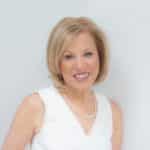 Susan Epstein is the founder of Highly Profitable Practice, which provides coaching and mentoring services to seasoned women professionals who want to scale their coaching business.
Susan Epstein is the founder of Highly Profitable Practice, which provides coaching and mentoring services to seasoned women professionals who want to scale their coaching business.
Susan has over twenty years experience as a business coach and strategist helping women create coaching programs that give them a lifestyle business and the financial independence they want.
Susan currently offers coaching programs that focus on designing, creating and filling up groups and masterminds.
